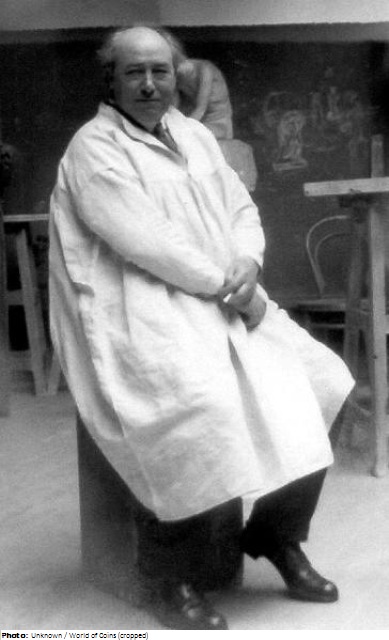
| Roles | Competed in Olympic Games |
|---|---|
| Sex | Male |
| Full name | Oliver•Sheppard |
| Used name | Oliver•Sheppard |
| Born | 10 April 1865 in Cookstown, Northern Ireland (GBR) |
| Died | 14 September 1941 (aged 76 years 5 months 4 days) in Dublin, Dublin City (IRL) |
| NOC |  Ireland Ireland |
Oliver Sheppard began his studies at the Dublin Metropolitan School of Art and continued in London (under Édouard Lanteri) and in Paris, mostly influenced by Lanteri. In Dublin he became a lecturer for sculpture at the Dublin Metropolitan School of Art, now the National College of Art and Design, teaching there from 1902-37. His early Irish mythological subjects reflected the influence of Jack Yeats and are part of the poetic imagery of the search for national identity. Oliver’s father Simpson Sheppard was also a sculptor.
He is best known for his bronze sculpture idealizing the Irish struggle for independence. The Death of Cuchulainn is considered Sheppard’s masterpiece and an important work of Irish art. It is a bronze figure of the mythological warrior-hero Cuchulainn, who continued to fight against his enemies while gravely wounded and tied to a tree. Sheppard was important as an Irish Protestant who supported Irish independence, beginning as a student in the 1880s when he joined the Irish Parliamentary Party. He created at least two sculptures bearing the title of his entry, The Bather. Dating from 1915 and 1934, both were presented at the respective Royal Hibernian Academy’s annual exhibition.
| Games | Discipline (Sport) / Event | NOC / Team | Pos | Medal | As | |
|---|---|---|---|---|---|---|
| 1924 Summer Olympics | Art Competitions |  IRL IRL |
Oliver Sheppard | |||
| Sculpturing, Open (Olympic) | ||||||
| 1928 Summer Olympics | Art Competitions |  IRL IRL |
Oliver Sheppard | |||
| Sculpturing, Statues, Open (Olympic) |